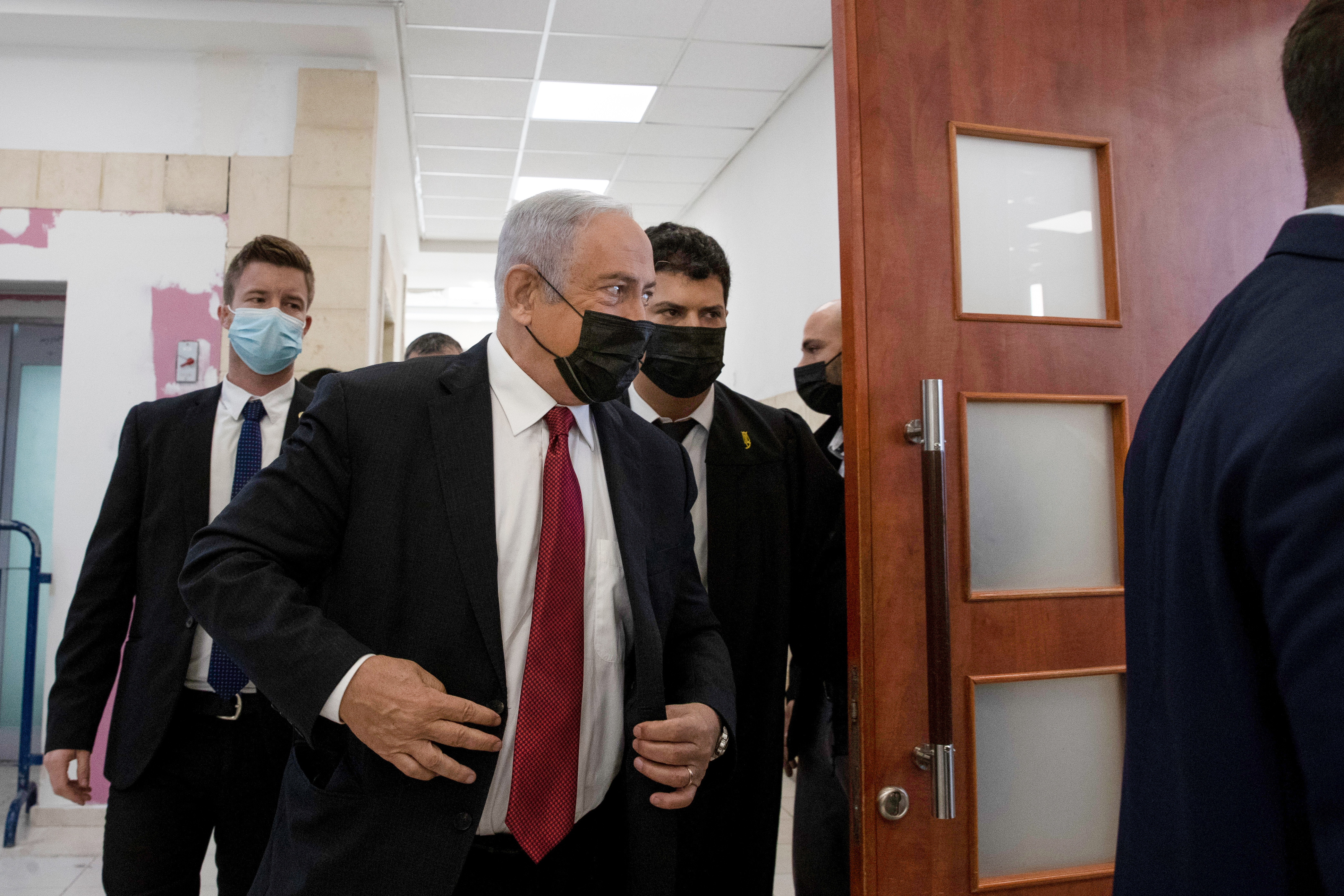
Israeli President Isaac Herzog has called for an immediate halt to the government’s controversial judicial reform plans which have sparked months of street protests in the country.
“For the sake of the unity of the people of Israel, for the sake of the necessary responsibility, I call on you to halt the legislative process immediately,” Herzog said in a statement on Monday.
A day earlier, Israel’s longest-serving prime minister, Benjamin Netanyahu fired his Defence Minister Yoav Gallant after he called the government to halt the proposed changes.
The move led to tens of thousands of people taking to the streets in Tel Aviv to protest Gallant’s dismissal.
Here is a timeline of events that led to today’s crisis:
November 2019
Netanyahu is charged with fraud, breach of trust and accepting bribes after three years of investigation.
Attorney General Avichai Mandelblit has charged Netanyahu after investigating reports of him accepting gifts from millionaire friends and allegedly seeking regulatory favours for media tycoons in return for favourable coverage.
Netanyahu denies the allegations and pleads not guilty as the trial continues.

June 2021
Centrist Israeli politician Yair Lapid successfully puts together an unusual coalition of liberals, right-wing and Arab parties, removing Netanyahu from power after more than 12 years as prime minister, with far-right leader Naftali Bennett replacing him.
2022
January
Reports circulate in local and international media the 73-year-old Netanyahu is negotiating a plea bargain to end his corruption trial.
However, talks are said to have hit a roadblock over Netanyahu’s demand to be spared a conviction carrying a “moral turpitude” clause – which under Israeli law would force him to quit politics for years.
November
In a remarkable comeback, Netanyahu’s Likud party, together with a coalition of far-right parties, win the fifth Israeli election since 2019.

December
Israel’s parliament swears in Netanyahu as prime minister, inaugurating the country’s most far-right, religiously conservative government in history.
2023
January
Days after taking power, Netanyahu’s justice minister unveils a plan to change the country’s judicial system, which critics slam as an attempt to weaken Israel’s judiciary and escape his corruption trial.
The plan would give the government greater control over appointing Supreme Court judges. Netanyahu says the changes are needed to curb activist judges who overreach their powers to interfere in politics.
On January 14, thousands of Israelis protest against the proposal in several cities. Reports say some 80,000 protesters came out in Tel Aviv. The government dismisses the protests as the left refusing to accept the results of November’s election.
Netanyahu is forced to fire Aryeh Deri, his minister of interior and health, after the Supreme Court rules Deri cannot serve due to a 2022 conviction.

February
Weekly protests across Israel continue as the Netanyahu government reiterates its commitment to making the controversial changes.
President Herzog makes a rare televised plea for consensus, and warned that Israel was “on the verge of legal and social collapse”.
Meanwhile, US President Joe Biden urges Netanyahu to build consensus before pushing through far-reaching changes.
On February 13, thousands of people protest near the Israeli parliament as lawmakers engage in a heated debate on the bill proposing the controversial changes.
The United Nations urges the Israeli government to pause pushing through its proposals, saying the changes could “risk weakening human rights protections for all”.
March
On March 13, the parliament also advances a bill that would make it harder to remove Netanyahu over the corruption charges that still hang over him.
A day later, the Knesset advances the first reading of the judicial changes bill.
On March 20, Netanyahu delays ratifying the reforms until the end of April.
Israel’s attorney general tells Netanyahu that his personal involvement in plans to change the country’s judiciary is illegal.
Netanyahu fires Defence Minister Yoav Gallant on March 26, one day after he criticised the prime minister’s plans for the judiciary. Bigger and fiercer protests break, with tens of thousands taking to the streets.








